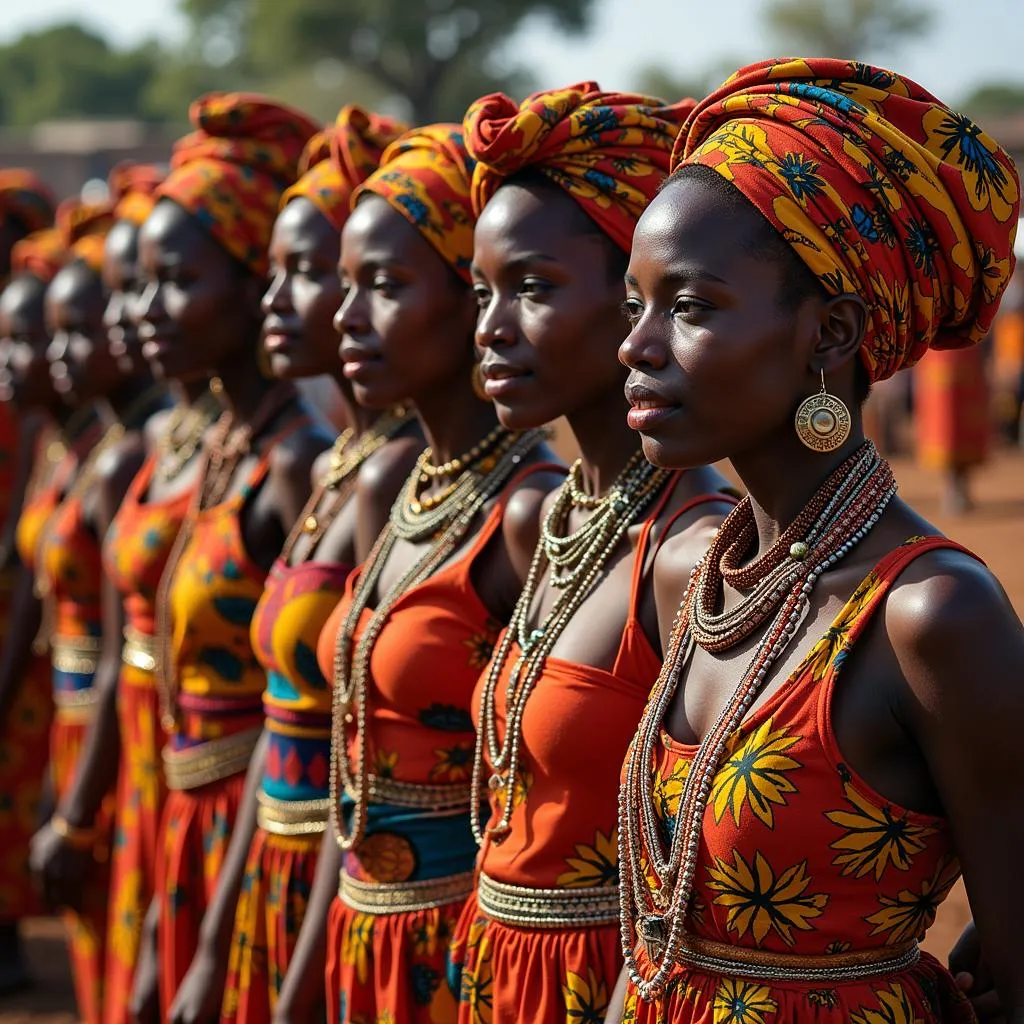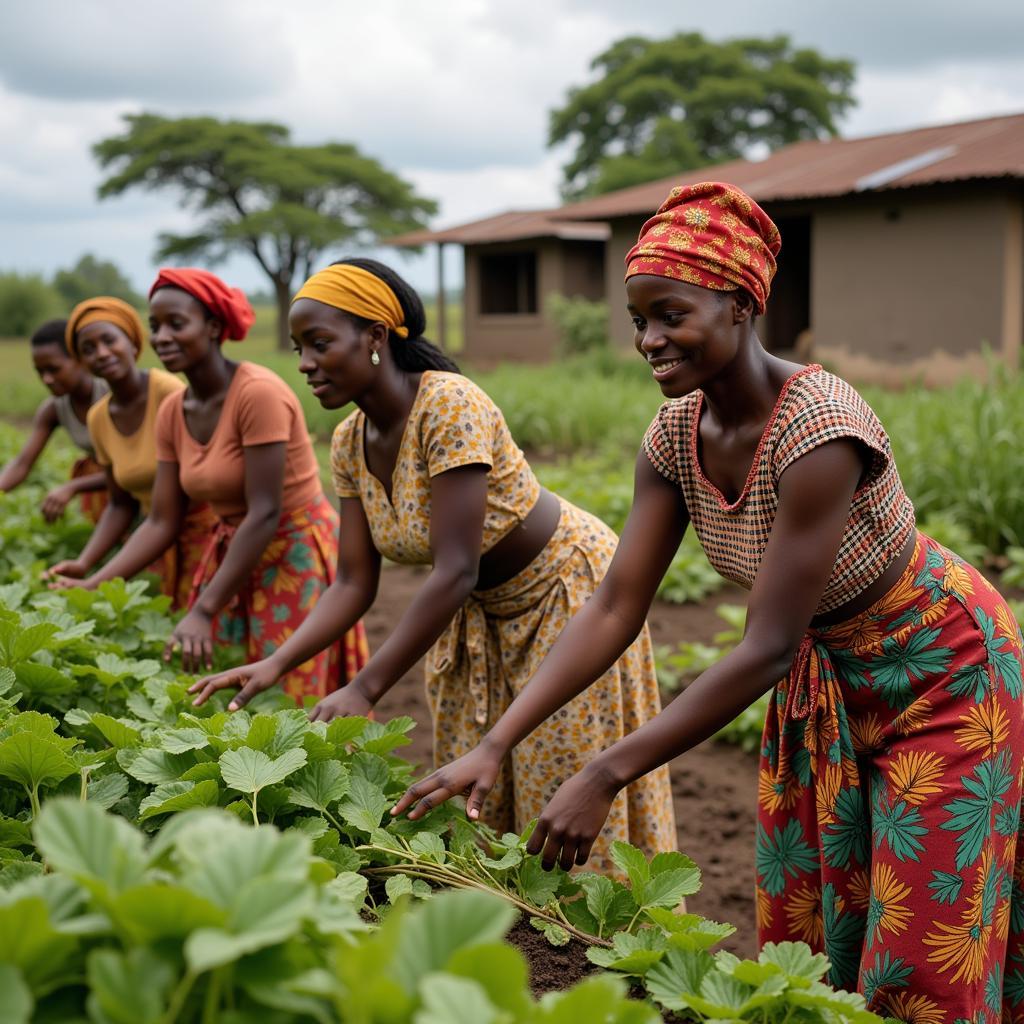A Journey Through the Vibrant World of African Festivals
African Festivals offer a captivating blend of cultural immersion, vibrant celebrations, and historical significance. From the rhythmic dances of West Africa to the elaborate masquerades of East Africa, these festivals showcase the continent’s rich heritage and provide a window into the soul of its people.
The Cultural Tapestry of African Festivals
African festivals are deeply rooted in tradition and often serve to mark important milestones in the agricultural calendar, religious observances, or historical events. They offer a unique opportunity to witness centuries-old customs, beliefs, and rituals passed down through generations.
For instance, the annual Yam Festival in Ghana celebrates the harvest of this staple crop and is a testament to the agricultural heritage of the region. Similarly, the Gerewol festival in Niger, known for its elaborate beauty contests where Wodaabe men adorn themselves with intricate makeup and costumes, highlights the importance of courtship and tradition within their culture.
A Feast for the Senses
African festivals are not just visual spectacles; they are a multi-sensory experience that immerses visitors in a world of vibrant colors, captivating rhythms, and enticing aromas.
Music and dance are integral to African festivals, with each region boasting its own unique styles and instruments. The pulsating rhythms of the djembe drums, the melodic tunes of the kora, and the vibrant dances performed in colorful costumes create an atmosphere of pure joy and celebration. Food also plays a central role, with festivals providing a chance to savor traditional delicacies. From spicy Jollof rice to hearty tagines, the culinary offerings are as diverse as the continent itself.
Experiencing African Festivals
Attending an african festival 2019 offers a unique opportunity to connect with the heart and soul of Africa. These celebrations provide a platform for cultural exchange, fostering understanding and appreciation for the continent’s diverse traditions.
Whether you choose to witness the colorful Durbar festival in Nigeria, immerse yourself in the music and dance of the Timkat celebration in Ethiopia, or experience the cultural extravaganza of the Zanzibar International Film Festival, an African festival is an unforgettable experience that will stay with you long after the festivities have ended.
Types of African Festivals
The African continent is home to a wide array of festivals, each with its own distinct character and significance. Here are a few notable categories:
-
Harvest Festivals: These celebrations mark the harvest of important crops and are often accompanied by feasts, music, and dancing. Examples include the Homowo Festival in Ghana and the Umhlanga Ceremony in Eswatini.
-
Religious Festivals: These festivals often commemorate significant events in religious calendars. Examples include the Muslim festival of Eid al-Fitr, widely celebrated across Africa, and the Meskel festival in Ethiopia, a Christian celebration commemorating the discovery of the True Cross.
-
Masquerade Festivals: These festivals are characterized by elaborate costumes, masks, and performances that often depict ancestral spirits or mythological figures. Examples include the Egungun festival in Nigeria and the Koutammakou Festival in Togo and Benin.
-
Music and Dance Festivals: These festivals celebrate the rich musical heritage of Africa, showcasing traditional and contemporary music and dance forms. Examples include the Sauti za Busara in Zanzibar and the Festival au Désert in Mali.
Planning Your African Festival Adventure
When planning to attend an African festival, consider the time of year, location, and your own interests. Research different festivals to find one that aligns with your preferences. Remember to be respectful of local customs and traditions, dress modestly when appropriate, and embrace the opportunity to learn and experience something new.
Conclusion
African festivals are more than just celebrations; they are vibrant expressions of culture, history, and identity. They offer a unique opportunity to witness the soul of Africa, to connect with its people, and to create lasting memories. So, embark on a journey of cultural discovery and explore the captivating world of African festivals.
FAQs about African Festivals
1. What is the best time of year to attend an African festival?
Many African festivals are seasonal, often coinciding with harvests or religious observances. It’s best to research specific festivals for their dates.
2. Are African festivals family-friendly?
Many African festivals are family-oriented, with activities and entertainment for all ages. However, it’s always a good idea to check the festival’s website or contact organizers for specific information.
3. What should I wear to an African festival?
Dress respectfully, considering local customs. Loose-fitting, comfortable clothing is generally recommended, along with comfortable shoes for walking and dancing.
4. Can I take photographs at African festivals?
It’s always polite to ask for permission before taking photographs, especially of individuals. Some festivals may have specific photography guidelines.
5. What are some tips for making the most of my African festival experience?
Be open to new experiences, try local foods, learn a few basic phrases in the local language, and engage with locals and fellow festival-goers.
Looking for more insights into African culture? Explore these related topics:
- african festivals melbourne
- african festivals london 2019
- african festivals wikipedia
- african festivals in the caribbean
Need assistance planning your African adventure?
Contact us at:
Phone: +255768904061
Email: kaka.mag@gmail.com
Address: Mbarali DC Mawindi, Kangaga, Tanzania.
Our dedicated team is available 24/7 to assist you!


